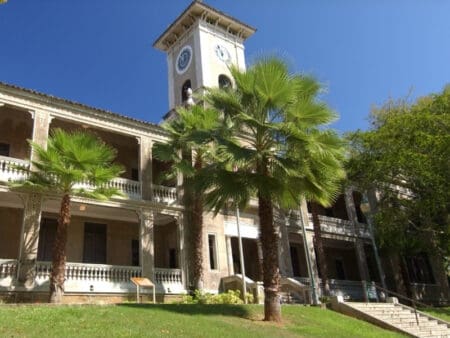
The University of Puerto Rico at Mayagüez is leading a project to advance smart grid technologies for communities impacted by climate change and related extreme weather events.
The project ‘STORM: Data-driven approaches for secure electric grids in communities disproportionately impacted by climate change’ is intended to engage underserved communities in local climate change solutions and increase their situational awareness of the grid as well as to study community engaged operation of local power grids.
The project, which is expected to advance the nation’s smart grid technologies to support these communities, has been awarded an initial $375,000 in funding – half the intended total – from the National Science Foundation’s EPSCoR research stimulation programme.
Other participants include the universities of Maine, South Dakota State and Alaska Fairbanks.
Have you read?
AMI and weatherproofing guide $36.4bn investment plans for US grid modernisation
Extreme weather pushes power grids to the brink – Is AI the answer?
The project is designed to respond to current resilience challenges, in particular the more frequent and intense extreme weather events and physical and cyber attacks, with three interrelated themes.
Theme 1 is focussed on engagement with underserved communities in local climate change solutions and knowledge translation for microgrid design.
Theme 2 then seeks to increase the situational awareness of underserved communities in order to improve the local power grid resilience through accelerated big data modelling, estimation and secure control frameworks.
A new multi-microgrid system restoration strategy is planned to prioritise critical loads at the community and individual levels based on a new multi-timescale predictive control and estimation framework that utilises grid forming inverters to provide dynamic support during the process.
Novel hardware Trojan prevention, detection and mitigation techniques should advance cyber-attack resilience of the entire system during severe weather.
Theme 3 addresses the development of a regionally relevant cyber-physical research infrastructure for studying community-engaged, data driven operation of power grids.
The new synthetic power systems, climate and socioeconomic data are expected to be immensely valuable to the advancement of data science, machine learning and artificial intelligence applied to the electric industry in these underserved jurisdictions.
The STORM project is expected to benefit from solid existing partnerships including a Department of Energy EPSCoR project on modelling converter-dominated power systems.
The project also builds on partnerships with the Sandia, National Renewable Energy and Pacific Northwest National Laboratories.
In addition, the project will leverage relationships with industry and community partners, including the Kotzebue Electric Association, East River Electric Co-op, Missouri River Energy Services, National Rural Electric Cooperative Association, Siemens, Sioux Valley Energy, Sustainable Energy for Galena and Versant Power.








